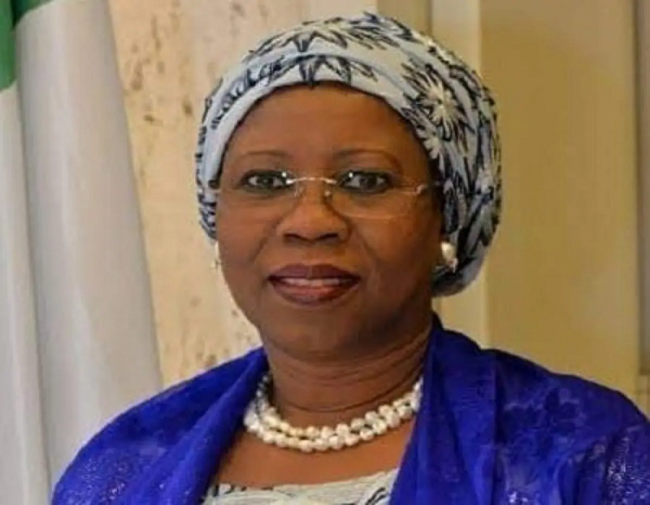The Survival Fund programme initiated by the current administration has failed to meet its target due to “several factors” the Federal Government said.
Stating this was the Minister of State for Industry, Trade and Investment, Mariam Katagum, who said that the last track of the Survival Fund was hindered due to factors needed to conduct a “proper assessment” of prior schemes.
She said this in Abuja on Tuesday. stating that the “Off-take Scheme is one of the tracks of the MSME Survival Fund Scheme under the Nigeria Economic Sustainability Plan (NESP).
“Several factors had slowed down the implementation of this last track of the Survival Fund, one of which was the need to do a proper assessment of the earlier schemes and to close identified gaps.
“As you are all aware, the Nigeria Economic Sustainability Plan was approved by the Federal Executive Council (FEC) on 1st of July 2020, following its initiation by the Economic Sustainability Committee (ESC) constituted by His Excellency, President Muhammadu Buhari on March 30, 2020.
“The implementation of the MSME Survival Fund across the initial four tracks i.e Payroll Support Scheme, Artisan and Transport Scheme, Formalization Support Scheme and General MSME Grants have all yielded positive results that are verifiable and measurable and the impact is huge.
“Under the Payroll Support Scheme, our initial target was to reach 500,000 beneficiaries. Our current standing is put at 459,334 successful beneficiaries across the 36 States and the FCT. Out of this number, we have recorded 43% female-owned businesses and 3% special needs.
“The Artisan and Transport Scheme had an initial target of 333,000 Artisan and Transport beneficiaries. We currently stand at 293,336 successful beneficiaries across the 36 States and the FCT.
“The CAC Formalization Support Scheme set out to register 250,000 new businesses and I can report that to date, 244,162 small and growing enterprises have been successfully registered free of charge, across the 36 States and the FCT.
“Also, the General MSME Grants Scheme had its initial target set at 100,000 MSMEs and we have successfully completed the provision of grants to a total of 82,491 till date.
“To date, we have successfully disbursed the sum of N56,842,780,000.00 to 1,079,323 (including those registered under CAC).
“The last track of the MSME Survival Fund is the Guaranteed Off-take Scheme which we are here to officially flag off-today.
READ ALSO: 7 Things To Know About CBN’S E-Wallet
“Building on the successes recorded in the implementation of the other tracks of the Scheme and in line with the plan to fully rejuvenate the economy, especially MSMEs, in the manufacturing sector, the Federal Government is set to roll out the last component of the Survival Fund known as the Guaranteed Off-take Scheme (GOS).
“As you all know, the COVID-19 pandemic caused a drop in demand for corporate and household products and commodities in Nigeria just like it did in other parts of the world. It is in response to this that the Guaranteed Off-take scheme was conceived as part of the Federal Government’s interventions to assist small and growing businesses that were negatively affected by the pandemic.
“It is important to inform you at this point that this track had an initial target of 100,000 MSMEs across the country. By the time the portal closed, we had received a total of 65,976 applications across the country out of which we have verified and pre-qualified 50,032 MSMEs that we are presently processing to off-take their products.
“As I indicated earlier, there were certain issues that slowed down this flag-off. In the first instance, there was the obvious need to review the other tracks of the MSME Survival Fund to enable us to address the challenges in implementation, particularly the issue of failed payments and balancing value and equity among States.
“There was also the need to ensure that every State Government considered as key Stakeholders in the GOS are fully integrated and understand their roles.
“Another factor that slightly delayed the take-off of the GOS was the determination of the Steering Committee to ensure that all due process is followed with the Bureau of Public Procurement BPP.
“Furthermore, we needed to ensure that all logistics are put in place as close to each of the over 50,000 beneficiaries as possible. This obviously made a huge demand on resources but it was a factor that was considered a high priority to achieving the objectives of the GOS.”














